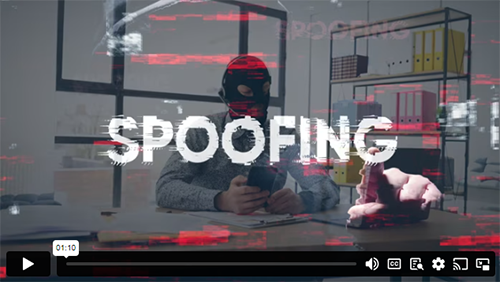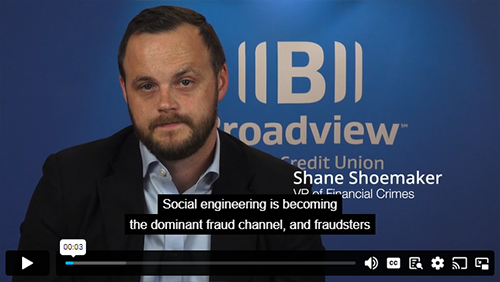
How to Protect Yourself from Scammers
“We see fraud on your account and need some information.”
It’s a scam! Financial employees won’t ask for your logins, codes, or PINs. Criminals will. BEWARE – don’t share!
Long Story Short
“All of my savings were stolen before I realized what happened.” Scams follow familiar patterns, as criminals trick people into giving their money to them.
To stay safe, keep it simple. Don’t share your personal information with strangers.
3 Easy-to-Remember Tips
- If you get a suspicious call about your account or card, hang up. Call your financial institution at its official published phone number to follow up.
- Never share the access code or case number you received in a text or email from your financial institution with anyone.
- If you get a text from your financial institution asking if you made a purchase, only respond ‘yes’ if you did.
Beware, Don't Share
|
Scam |
What Happens |
What To Do |
|
Phishing Messages from phony officials or companies "fish" for your money and identity. |
You receive a request that appears to be from a trustworthy source, such as Broadview FCU, asking for your personal or financial information. You wonder: Is it legit? |
DON'T share personal or financial details with anyone you don't know, especially if you receive an unexpected:
|
|
What's the access code?  |
A criminal obtained your account credentials and contact info. He is trying to log in and steal your money. You wonder: Why am I receiving an access code for my account out of the blue? |
NEVER provide your access code or case number to anyone who asks for it. |
|
Wait, did I buy that?  |
You receive an alert for a purchase that looks unfamiliar. You wonder: Is this an alert for something I bought, or a scam? |
NEVER confirm a purchase you did not make. |
|
Surprise! You owe money.  |
An “IRS agent” calls to say you have an overdue tax bill and owe money. You wonder: Do tax officials call instead of mailing a notice? And why are they asking me to pay with gift cards? |
NEVER buy gift cards and provide card information to anyone you don’t know, especially someone who claims to be from the government or law enforcement. |
|
Job scam
|
You see a job listing on Indeed.com for a remote position. As soon as you apply, you receive a job offer with a request for financial account details so you can get paid. You wonder: This seems too easy. Should I email sensitive account info? Why do I have to pay for supplies to work? My gut tells me there’s something wrong. |
PERFORM an internet search of the company to confirm it is legitimate BEWARE of red flags:
DON’T respond to requests for your Social Security Number, financial info, or driver’s license number |
Resources
Beat the bad guys with safeguards that work.
Know common scams, so you can protect yourself.
Attend a live, online Fraud Prevention event.
Got a minute? Shane Shoemaker, VP Financial Crimes, talks fraud.
Shane Shoemaker, VP Financial Crimes, tells you how to spot the scam in this short video.
Job offer or rip offer? Shane Shoemaker, VP Financial Crimes, explains in 2 minutes.
When in doubt, reach out
Call 800-634-2340
capcomfcu.org/contact-us/















